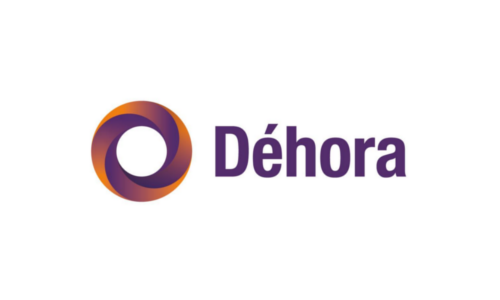- Executive Note
- Editorial note
- Interviews
- Human Resources
- Events Coverage
Time Intelligence as a key concept to manage time effectively
Déhora | Apr 25, 2023, 23:10


Although there is no indication that time is passing faster than it used to in the physical sense, the feeling of its lack is becoming more and more common nowadays. Time is a value of special importance for modern societies. It is also a good that is extremely democratically distributed among people – everyone has exactly the same amount of it, but experience shows that we differ greatly in our competences of using it.
Also for organisations, the effective use of time is now a dominant problem. Therefore, the issue of time resource management is gradually becoming one of the most important areas of interest and activity of the management of the organisation.
In this article, I introduce the concept of Time Intelligence (TI), which, on the one hand, is an important feature of human personality that is worth introducing to the arsenal of qualifications describing an employee. On the other hand, TI can also be reasonably considered as a feature of an organisation that significantly determines its functioning and success on the market.
Until now, the term TI has been commonly used in business intelligence to describe a set of techniques and calculations used to analyse data over time. It involves understanding and analysing data in the context of time periods, such as months, quarters, or years, and using this information to gain insights into trends and patterns in the data. TI is commonly used in fields such as finance, sales, and marketing, where trends over time are important for forecasting and planning.
However, TI is not an established concept within personality psychology yet. Intuitively, one can speculate on what it might mean. TI could refer to an individual’s ability to understand and manage their time effectively. This could include skills such as setting priorities, planning, and scheduling, as well as being able to estimate how long different tasks will take. TI could refer to an individual’s awareness of time, understanding how the past affects the present and how the present can shape the future, and how time impacts their experiences and perceptions.
A good example of the importance of IT in the performance of tasks by People & Culture departments can be seen in the introduction of remote work to the Polish Labour Code as a result of the implementation of the EU directive. This is a significant change in the professional life of a large number of employees in recent years and a difficult challenge for P&C departments. Remote work, while having many advantages, also carries a number of risks. Several of them are directly related to TI; for example, poor time management, blurring of boundaries between work and private life and the resulting conflict of obligations, or the feeling of being at work all the time.
For most companies, working time planning is, or should be, the second core business. Moreover, planning production or services and planning working time should be treated as two sides of the same coin. Flexibility in working time planning, understood as a manifestation of TI, is the key to matching staffing to the often very variable labour supply. In this process, cost-effectiveness, compliance with legal and ergonomic requirements, and employee expectations must be taken into account.
Accurate determination of staff working time is crucial for the employer for at least two reasons. First, it is known from research that neither shortening nor extending working hours leads to improved productivity in itself. The secret lies in finding the optimal balance between the amount and type of work to be done and the number and type of employees needed to do it. Growing competition forces companies to be more flexible, work faster and achieve better coordination of tasks in time. In recent decades, due to the general increase in the speed of change in economic and social life, the amount of work to be done is more fluctuating and less predictable than it used to be.
Increasing the flexibility of working time is also a need of employees and results, among others, from the progressing individualisation processes in society, which are also manifested in the area of employment relations. This creates a second reason for the need to precisely plan the working time of employees: maintaining the attractiveness of the company as an employer. Those companies that have decided to introduce the principle of flexible work schedules distinguish themselves favourably from the competition by creating better working conditions.
Finally, there are other reasons that make professionalisation and more flexible working time arrangements an urgent need. In many societies, the number of cases of professional burnout and, as a consequence, long-term sick leave is increasing. The aging of societies forces us to look for solutions that will allow us to maintain a high level of professional activity of people of working age and to extend it beyond the current retirement age. This has already happened in many countries, and there is a political and social debate about it in Poland.
The Dutch guru of corporate working time management, Ben Jansen, points out that focusing attention on the temporal dimension in the company entails a number of changes. Management is determined not by cost analysis and increasing work efficiency, but by increasing the efficiency of time use and timing of activities. Description and analysis of the processes taking place in the company are made not according to departments, positions and functions, but according to continuous ‘streams’ of activities flowing over time that are essential for the company’s profile. Development or improvement of the functioning of the organisation is sought not in cost reduction or finding and removing individual bottlenecks, but in time savings and systemic solutions. People management focuses not on the collective and collective work arrangements, but on the individual and their individual needs, including those in the psychological dimension, i.e. primarily on work-life balance. Therefore, the essence of HRM activities is co-operation with the employee in reference to his/her responsibility, ability to self-control and effective performance over time.
Professional working time management should be long-term and take into account both ergonomic and social factors in order to be able to count on a wider acceptance of activities by the staff. Creating schedules is often mistakenly equated by inexperienced managers with professional time management. Meanwhile, it is, or should be, the last, operational phase of this process. As you might expect, the quality of the final product will be determined by the quality of the strategic management processes that preceded it. In management, understood both as a branch of science and practical activity, the issue of working time regulation is slowly gaining its rightful place. TI is here a key term applying to both a person and an organisation.
There are no common, standardised TI tests. One of the attempts to create such a tool was made by Zenon Uchnast and Kinga Tucholska from the Catholic University of Lublin in 2003. They created the Temporal Competences Questionnaire consisting of 64 affirmative sentences. Their content concerns various aspects of experiencing and evaluating the past, present and future. In the study, they obtained sufficient differentiation of results among the respondents and could check the correlates of Temporal Competences (TC), which in their understanding seem to coincide with the meaning of TI adopted in this article. Thus, people with high TC, compared to those with low TC, have a stronger sense of coherence, meaning that the world is seen as understandable and meaningful, and that one has the resources to deal with the challenges that life brings. Moreover, these people have a stronger sense of confidence that they can cope with stressful situations, cope better with negative emotions, have a stronger belief that the demands of life are challenges worth investing and engaging.
Summarizing the above considerations, it should be stated that Time Intelligence appears to be a key concept to manage time effectively by individuals and organisations alike, and deserves to be introduced into the daily practice of P&C departments and beyond.
Dr Paweł P. Mlicki
Déhora Consultancy Group








